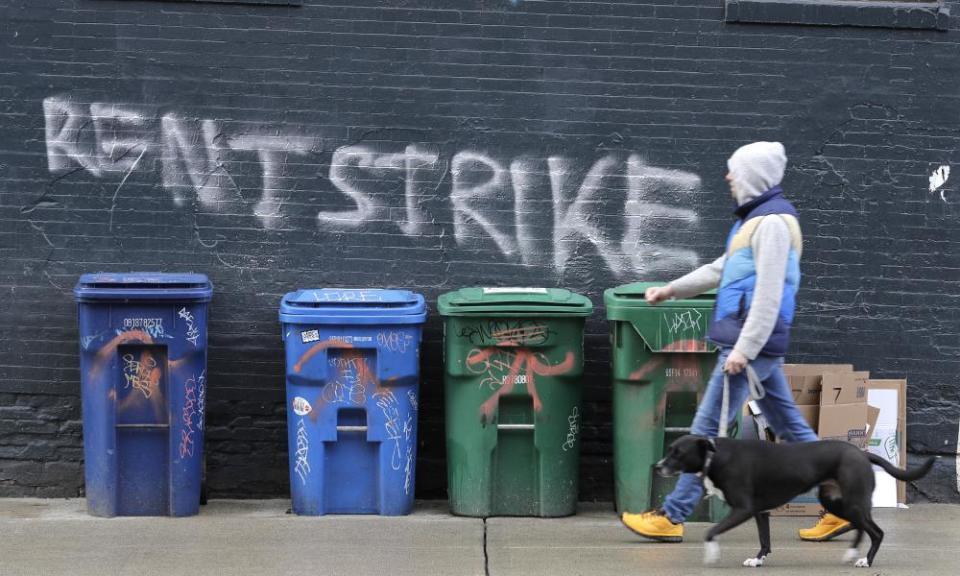Ilhan Omar unveils bill to cancel rent and mortgage payments amid pandemic

The Minnesota congresswoman Ilhan Omar has unveiled a bill that would cancel rent and mortgage payments for millions of Americans struggling amid the coronavirus pandemic.
Under the legislation announced on Friday, landlords and mortgage holders would be able to have losses covered by the federal government. The program would extend for a month beyond the end of the national emergency, which was declared on 13 March, and would be made retroactive to cover April payments.
Related: US governors and coronavirus: who has responded best and worst?
The proposal comes amid an unprecedented housing crisis: 31% of Americans in rental accommodation could not pay rent at the beginning of this month. Millions have lost their jobs since.
Federal answers have been limited. The Cares Act stimulus package included $12bn for Department of Housing and Urban Development programs targeting homelessness and rental assistance. But those funds do little to address the needs of millions of Americans who now find themselves on the edge of acute housing insecurity.
National housing groups have called for more funding for rental relief. The National Low Income Housing Coalition estimates it would cost about $76.1bn over 12 months to provide relief to the 11.5 million people who are already or soon will become severely housing cost-burdened. The group is demanding $100bn in emergency solutions grants towards short-term rental assistance.

But many housing advocates are concerned that such assistance would fail to provide the long-term protection needed to prevent mass evictions. A federal eviction moratorium established through the Cares Act extends only through mid-May, prohibiting evictions within properties with federally backed mortgages.
Without an enforcement mechanism, or a clear way for tenants to find out if their property is covered, evictions have continued.
Omar’s bill seeks to tie federal funding to clear renter protections. In order to receive funds, landlords and lenders would be required to follow a set of fair renting and lending practices for five years. These terms would prohibit rent increases, evictions without just cause, discrimination against voucher holders and more. Any owner or mortgagee who breaks the terms would be subject to a fine.
Perhaps most ambitiously, the legislation seeks to establish a fund to finance the purchase of private rental properties by not-for-profits, public housing authorities, community land trusts and state and local governments.
The legislation was developed with grassroots organizations including People’s Action, the Center for Popular Democracy (CPD) and PolicyLink. Such groups hope to introduce the kind of solutions they wanted in the wake of the 2008 financial crisis.
Dianne Enriquez, CPD housing campaign coordinator, said the 2008 crisis wiped out “millions of dollars in generational wealth”, particularly in black and brown communities, when people lost their homes.
“It created a devastation that we have not recovered from in the 12 years since,” she said, adding that as a result, “we are now a majority renter nation”.
In New York, statewide tenant coalition Housing Justice for All is aiming to organize a million renters to withhold rent and compel the governor, Andrew Cuomo, to cancel rent and mortgage payments. Tenants are also organizing in Philadelphia and California, where thousands have pledged to withhold rent on 1 May.
Omar’s bill proposes “an amazing way to use the federal stimulus package to not just provide direct relief but the long-term transformation of a real-estate market that’s based on speculation and private profit to a housing situation that prioritizes homes”, said Cea Weaver, campaign coordinator at Housing Justice for All.
“It provides a pathway to a different ownership structure that doesn’t rely on eviction and rent hikes to make money.”

